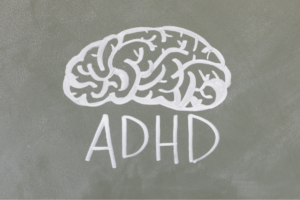Holistic Approaches to ADHD
Symptoms of Inattentive Type in Kids
- Short attention span, easily distracted
- Making careless mistakes in schoolwork
- Being forgetful and losing things
- Difficulty concentrating on tasks that are tedious or time consuming
- Difficulty with listening and carrying out instructions
- Constantly changing activities or tasks
- Difficulty organizing tasks
Symptoms of Hyperactivity and Impulsiveness in Kids
- Difficulty sitting still in a calm or quiet environment
- Constant fidgeting
- Unable to concentrate on tasks
- Excessive physical movement
- Excessive talking
- Unable to wait their turn
- Acting without thinking
- Interrupting conversations
- Little or no sense of danger
The diagnosis of ADHD requires symptoms to be present for at least 6 months and the symptoms must be present before the person is 12 years old. Symptoms of ADHD in adults is more difficult to define, likely due to a lack of ADHD research in adults. Inattentive, hyperactive and impulsive symptoms affect adults differently than children. Hyperactivity tends to decrease in adults while inattentiveness can persist with the increasing pressures and responsibilities of adult life. Adult symptoms tend to be more subtle.
Neuroinflammation and Oxidative Stress
While the exact cause of ADHD is unknown, we do know that both genetic and environmental factors play a role. Research shows that inflammation is associated with most psychiatric disorders including ADHD. Oxidative stress, when there are higher levels of free radicals and lower levels of antioxidants, contributes to ADHD. Oxidative stress, neuroinflammation, autoimmune disease, maternal immune activation, allergic diseases and other immune mediated diseases are all associated with ADHD. Mitochondrial dysfunction may also be a possible contributing factor to the underlying cause of ADHD.
Methylation is a biological process in the body where methyl groups are added to a DNA molecule which affects gene expression. Researchers believe that DNA methylation may be involved in modulating genetic or environmental pathways that contribute to ADHD. Low DNA methylation activity has been correlated with higher levels of ADHD symptoms in children at 6-years of age.
- Increased glutamate levels which creates immunoexcitotoxicity
- Lipid peroxidation of cell membranes (poor brain-cell communication)
- Impaired detoxification of harmful chemicals
- Damage to the mitochondria of the cells (oxidative stress)
- Causes neuroinflammation
Natural Treatments for ADHD
- Eat a whole-foods diet, avoid processed food, consider possible food sensitivities to gluten, dairy or other foods.
- Limit refined sugar to 3-6 tsp per day
- Eat methyl and choline rich foods (egg yokes, beef, chicken, fish, broccoli)
- Consume green leafy vegetables
- Eat hormone and antibiotic free meat
- Eat fish and seafood with low mercury levels
- Drink clean, filtered water
- Avoid foods with additives or chemicals (MSG, aspartame, food dyes, glyphosphate)
Laboratory testing such as basic blood work, but also functional laboratory testing including kryptopyrrole testing, organic acid testing, food sensitivity testing, stool analysis, hormone testing and others may be indicated for patients with ADHD. Supplement considerations may include: Fish oils, Methyl B12, Folic acid, Vitamin B6, Zinc, CoQ10, Acetyl l-carnitine, Phosphytidylcholine, NAC or Glutathione, Probiotics and others. We strongly believe in a collaborative approach to care for our patients. Referrals for psychiatrists, therapists, counselors, and other mental health providers may be necessary to achieve the best health outcomes for patients.




